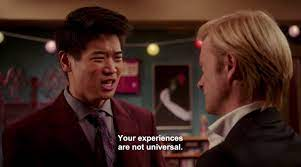I don't believe in cultural capital. Or rather, I don't believe it has such as big an impact on life chances as its proponents make out.
Let me tell you a story.I'm Jewish, but I didn't get a Jewish upbringing. When my Jewish colleagues ask me about what my Jewish Studies lessons were like at school, my answer is "I didn't have Jewish Studies lessons at school". I'm British, but I didn't grow up in Britain. I had Cartoon Network and Nickelodeon, not CCTV and CITV, so when people reminisce about the shows they watched as kids, all I can do it sit there looking bemused. I went to an American school, so when people talk about learning about Henry VIII, or the Ancient Greeks, I'm sat thinking "I learned about Mesopotamia, Incas, Aztecs and Mayans, and the Pilgrims". I'm middle class, but my brother and I were eligible for FSMs. At one point, my mum, my brother, and I all shared a single, single bedroom. I was raised on a strict diet of Bruce Springsteen, Guns 'n Roses, and (briefly, when I was about four) The Spice Girls. I cannot hold my own in a conversation about classical music. My idea of going to the theatre is Prince of Egypt. Or Queen, the musical. Even football - I spent my early teens going to football every other weekend, except it wasn't Chelsea, or Arsenal, or even Spurs (pft pft pft). It was Southend United. So I can't even talk about football!
Storytime over.
Successful people [often] have:- access to disposable income, which allows them
- time
- healthy food
- so-called cultural capital - trips and the like
- family or friends in positions of power/authority
